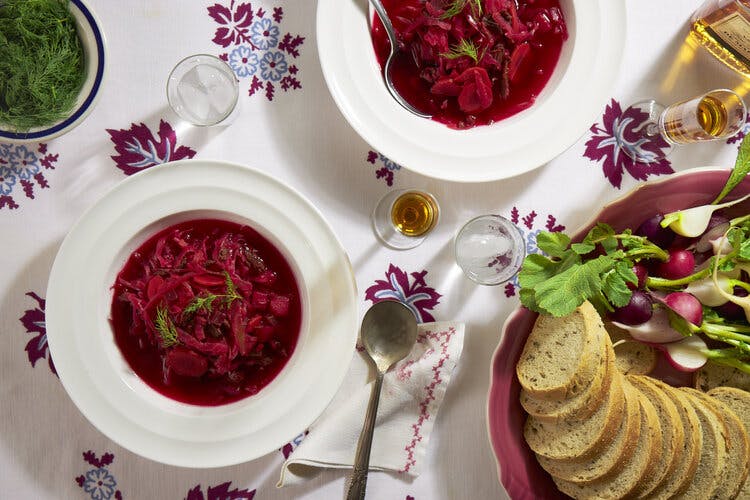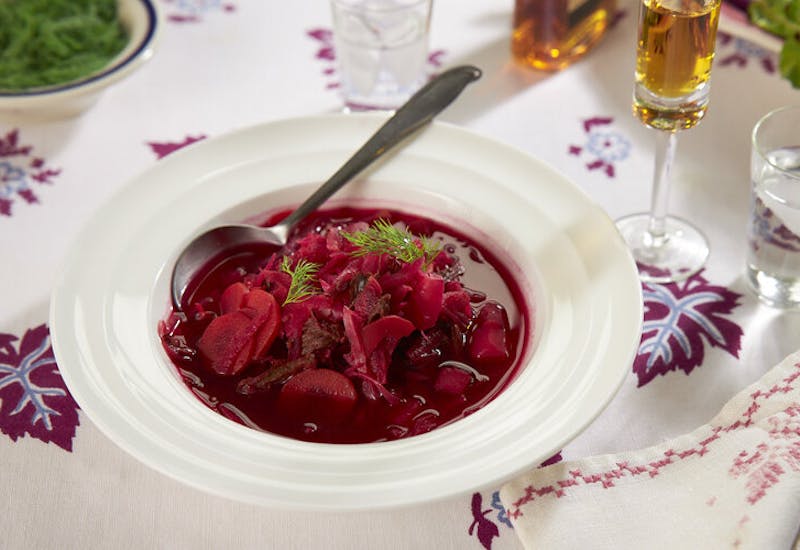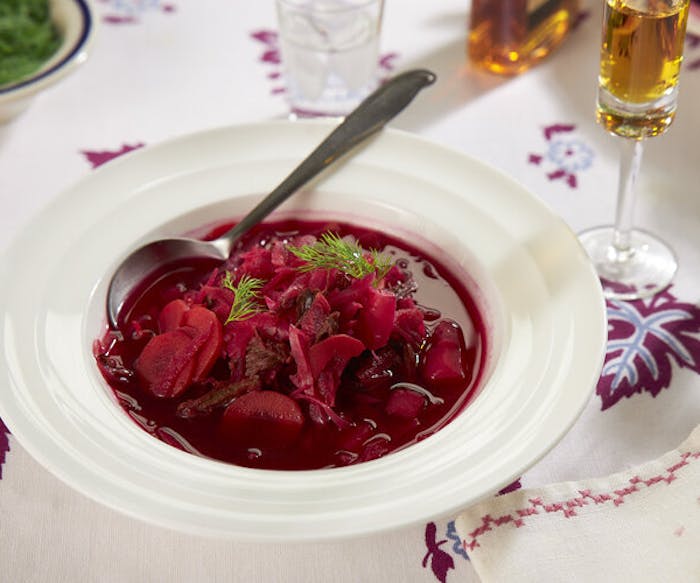Shared by Shifra Klein
From Russia, to Israel, to Brooklyn, The Borscht That’s Always on This Family’s Stove
From Russia, to Israel, to Brooklyn, The Borscht That’s Always on This Family’s Stove
Family Journey
In Shifra Klein’s family, hot borscht made with beets, flanken, tomato paste, and cabbage has sustained four generations across three continents — anytime of the year. “[In] August, I could be making borscht,” Shifra, the editor-in-chief of Fleishigs Magazine, says.
In Russia, outside of Moscow, where her mother Ita grew up in a deeply religious home, “a pot of soup like borscht would literally feed the family for a week. Each night it may have been served up a bit differently; one night with bread, or pickles, fresh salad, boiled eggs etc,” explains Shifra. Here, Shifra’s great grandmother Leba was the one who made the borscht for everyone. “Family was such a big part of their lifestyle,” she adds and three generations lived together under one roof.
Much of their family life changed in 1971 when they moved to Israel seeking religious freedom. Money was tight after the move and religious life was different as well. “In Russia, all religious Jews were pretty much in the same boat and in Israel there were so many nuanced differences,” Shifra explains.
In Israel, Leba’s recipes were passed to the next generation and Shifra’s grandmother Yehudis became the cook in the family. A math teacher and later a school principal, Yehudis balanced a career in education, strict religious observance, and cooking.
Yehudis became a master of the borscht, and at times shared the responsibility of cooking with Shifra’s grandfather. “I remember how my grandparents made the borscht together and it took them hours...but most memorable was the absolute joy they had to serve it to their loved ones,” Shifra explains. During the summers, when Shifra was little, her grandparents would visit her family in Crown Heights, Brooklyn where they lived — and there was always a pot of borscht on the stove when they were in town.
Anyone who stopped by was sent home with a container of the soup or salt and pepper kugel. “They [were] giving out door prizes of borscht,” Shifra jokes. But the practice left a deeper impression as well. “Like with many people — with many immigrants especially — when they have food to offer, they need to offer it,” she says. “It’s their way of expressing their love to you.”
When Shifra got married, her husband insisted they get the family borscht recipe from Shifra’s grandmother Yehudis. “She wrote it on the back of a tissue box,” says Shifra. “It’s so nostalgic.” Today, that original is preserved — tucked away in Shifra and her husband’s safe.


